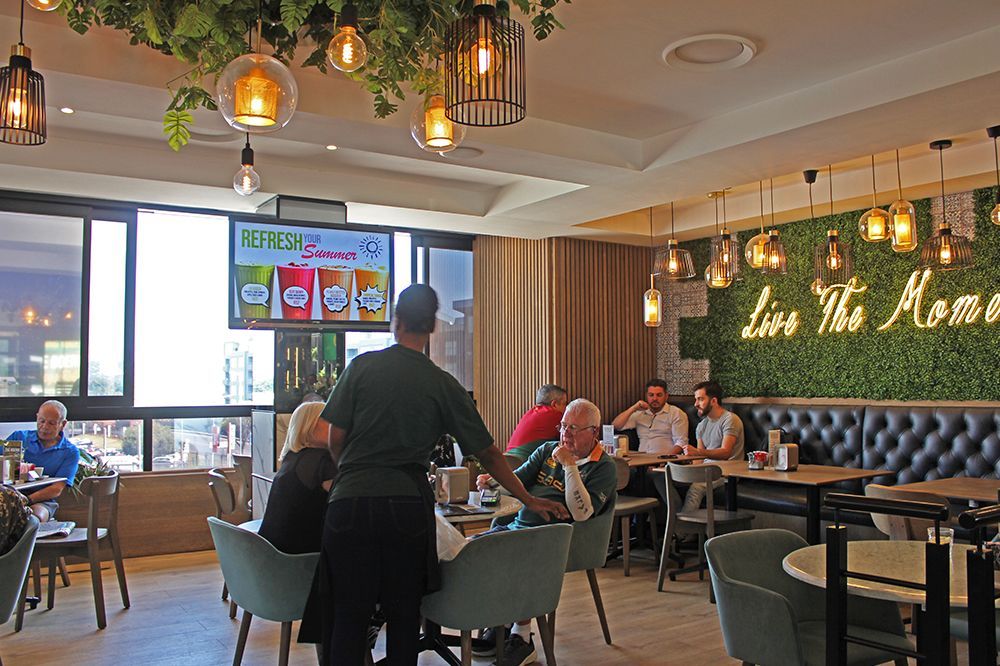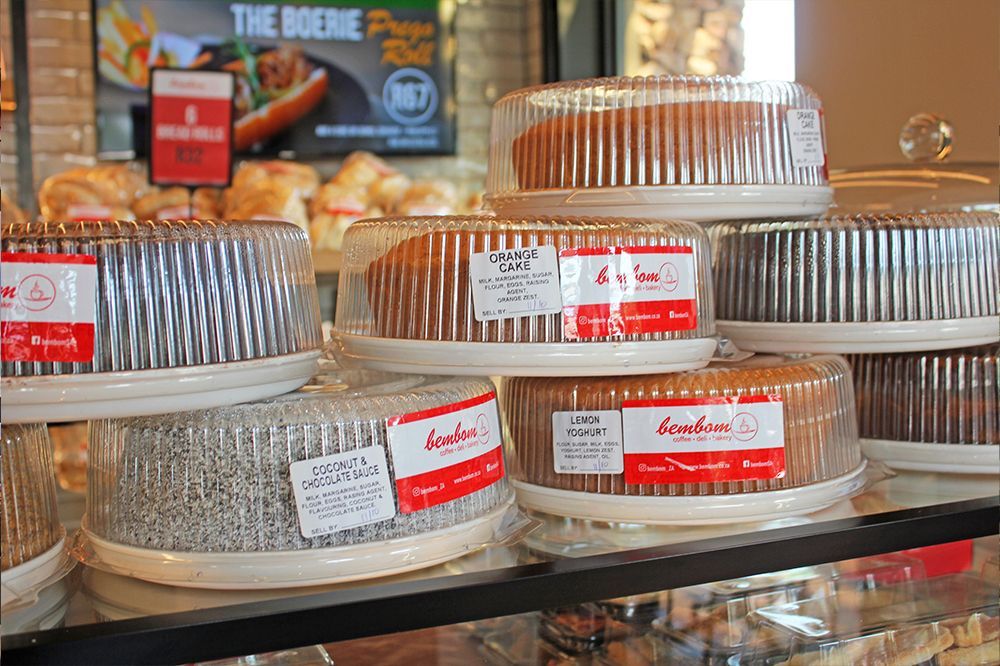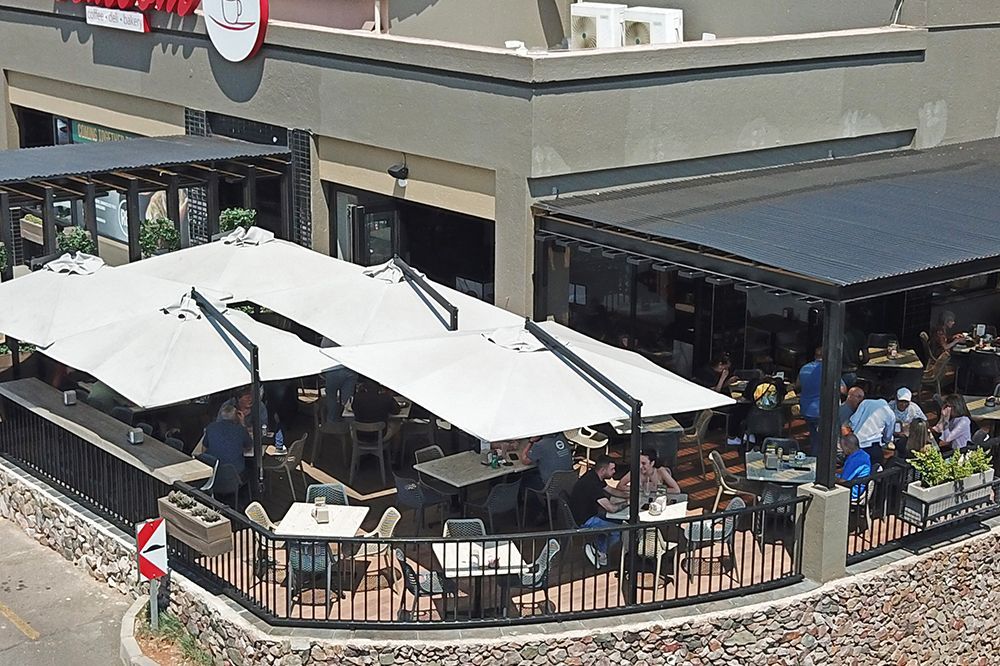Contact Information:
PHONE: 011 455 0329
EMAIL: info@bembom.co.za
Bedford Village, Cnr Of Van Buuren & Nicol Dr, 2007
BEMBOM
Blogs

17 Oct, 2023
The sun rises over the terracotta rooftops of Lisbon, casting a golden hue on the cobblestone streets. As the city awakens, so do its age-old breakfast traditions, a blend of simple flavors and communal rituals that set the tone for the day. From the bustling capital to the serene countryside, breakfast in Portugal is a cherished affair. Let's journey through these traditions and discover how Bembom recreates this authentic experience right here in South Africa. A Simple Start with Profound Flavors Unlike some cultures where breakfast is the heaviest meal of the day, the Portuguese prefer a lighter, simpler start. But don't be mistaken; what it might lack in quantity, it more than makes up for in quality and flavor. Bread & Spreads: The cornerstone of a Portuguese breakfast is fresh bread, often "papo-seco" (a type of roll) or "torrada" (toasted bread). These are typically slathered with butter, jam, or the ever-popular "marmelada" (quince jam). Pastries & Sweets: Portugal's pastry game is strong, and breakfast is no exception. The iconic "Pastel de Nata" often makes an appearance, alongside other treats like "pão de Deus" (a sweet roll topped with coconut) and "croissants" (which are slightly sweeter than their French counterparts). Cheese & Cold Cuts: In some regions, especially the countryside, it's common to have a slice of cheese or a bit of ham with the morning bread. The Coffee Culture No Portuguese breakfast is complete without coffee. The most popular choice is the "bica", a strong espresso shot that's the perfect pick-me-up. For those who prefer a milder brew, there's the "meia-de-leite", which is half coffee, half milk. The act of grabbing a morning coffee is as much about the caffeine as it is about socializing, often leading to animated conversations at local "pastelarias" (bakeries) and cafes. Bembom: A Portal to Portuguese Mornings At Bembom, our mission has always been to transport our guests to Portugal, one bite, one sip at a time. Our breakfast offerings are a testament to this commitment. Authentic Flavors: From our freshly baked "papo-secos" to our meticulously crafted "Pasteis de Nata", every item on our breakfast menu is a nod to Portuguese traditions. Coffee Perfection: Emulating the rich coffee culture, our baristas are trained to brew the perfect "bica", ensuring that you start your day the Portuguese way. A Communal Experience: Just as in Portugal, where breakfast is a communal affair, Bembom fosters a sense of community. Our spaces are designed to encourage conversations, laughter, and shared moments, mirroring the lively atmosphere of a Lisbon "pastelaria". A Universal Love for Breakfast While the foods and rituals might differ, the love for breakfast is universal. It's a meal that signifies the start of a new day, a moment of pause before the hustle and bustle, and an opportunity to connect with loved ones. In Portugal, breakfast is more than just the first meal; it's a celebration of life's simple pleasures. And at Bembom, we're honored to bring this celebration to the heart of South Africa. In Conclusion Whether you've had the privilege of experiencing a Portuguese morning in Lisbon or Porto, or you're discovering it for the first time at Bembom, the essence remains the same. It's about fresh flavors, strong coffee, and moments of connection. So, the next time you're at Bembom, as you take that first bite or sip, close your eyes and let yourself be transported to a sunlit morning in Portugal. Bom apetite!

17 Oct, 2023
Golden, flaky crusts filled with creamy custard, slightly charred on top, and dusted with a hint of cinnamon and powdered sugar – if this imagery makes your mouth water, you're not alone. The "Pastel de Nata", often referred to in its plural form "Pasteis de Nata", is an iconic Portuguese pastry that has won hearts worldwide. But what's the story behind this delightful treat, and how can you recreate it at home? Let's embark on a delicious journey. A Bite into History The origins of the Pastel de Nata are as rich as the pastry itself. It's believed that these custard tarts were first created in the 18th century by Catholic monks at the Jerónimos Monastery in Belém, a district of Lisbon. The monasteries used large quantities of egg whites for starching clothes, leaving behind a plethora of yolks. To avoid wastage, these yolks were often turned into cakes and pastries, leading to the birth of the now-famous Pasteis de Nata. When the monasteries faced financial difficulties, they began selling these pastries to the public, and the rest, as they say, is history. The Delicate Process Making Pasteis de Nata is an art form. It requires patience, precision, and a passion for perfection. The Crust: The pastry's base is puff pastry, which is made by layering dough and butter multiple times to achieve those signature flaky layers. The dough is then rolled, cut into rounds, and pressed into muffin tins. The Filling: The creamy custard is a blend of milk, sugar, egg yolks, and sometimes a hint of lemon or vanilla for added flavor. This mixture is gently cooked until it thickens and then poured into the pastry-lined tins. The Baking: The tarts are baked at a high temperature, which gives them their characteristic blistered, caramelized tops. Try It At Home: A Simplified Recipe While the traditional method can be intricate, here's a home-friendly version for you to try: Ingredients: Ready-made puff pastry 1 cup whole milk 2 tablespoons cornstarch 1 cup granulated sugar 6 large egg yolks 2 teaspoons vanilla extract Cinnamon and powdered sugar for dusting Instructions: Preheat your oven to 260°C (500°F). Roll out the puff pastry and cut into rounds. Press these into muffin tins. In a saucepan, whisk together milk and cornstarch. Add sugar and cook over medium heat until the sugar dissolves. In a separate bowl, whisk the egg yolks. Slowly add a bit of the warm milk mixture to the yolks, whisking continuously to temper them. Combine the yolk mixture with the remaining milk mixture in the saucepan. Cook until thickened. Stir in the vanilla extract. Pour the custard into the pastry-lined tins. Bake for about 15 minutes or until the tops are caramelized. Allow to cool slightly, then dust with cinnamon and powdered sugar. A Pastry that Transcends Borders Today, Pasteis de Nata has not only become emblematic of Portuguese culture but has also found its way into bakeries around the world. From Asia to America, this humble pastry's global appeal is a testament to its irresistible taste and the universal love for good food. In Conclusion The Pastel de Nata is more than just a pastry; it's a piece of history, a symbol of Portuguese culinary prowess, and an embodiment of sweet perfection. Whether you're savoring it in a café in Lisbon, at Bembom, or trying your hand at making it at home, every bite is a tribute to the art and tradition that goes into its creation. Happy baking!

17 Oct, 2023
Coffee is more than just a beverage; it's a ritual, a moment of respite, a conversation starter, and for many, a daily necessity. While coffee is enjoyed worldwide, each region has its unique approach to cultivating, brewing, and savoring this beloved drink. Today, we embark on a journey tracing the path of coffee from the verdant fields of Portugal to the aromatic cup you hold in your hands at Bembom. The Portuguese Connection Portugal, with its rich maritime history, played a pivotal role in the global spread of coffee. While the country itself isn't a significant coffee producer due to its European climate, its explorers and traders were instrumental in introducing coffee to various parts of the world, especially Brazil, which is now a coffee-producing giant. In Portugal, coffee is deeply ingrained in the daily fabric of life. Morning starts with a "bica", a strong espresso shot, often accompanied by a pastry. The afternoon might see locals indulging in a "garoto", a lighter espresso with a touch of milk. Cultivating the Bean While Portugal doesn't have vast coffee plantations like its former colony, Brazil, there are small pockets, especially in the Azores, where the climate and volcanic soil create the perfect conditions for cultivating coffee. The São Jorge Island, for instance, boasts Europe's only commercial coffee plantation. The beans grown here are of the Arabica variety, known for their smooth flavor profile and aromatic qualities. The cultivation is mostly organic, with the plants thriving in the rich, untreated volcanic soil. Brewing the Perfect Cup Portuguese coffee culture is distinct. Unlike the large mugs prevalent in places like the U.S., in Portugal, coffee is typically enjoyed in small, potent quantities. The aforementioned "bica" is a testament to this, packing a punch in a small demitasse. Another unique aspect is the "cimbalino", a term you'll often hear in Porto, derived from the popular espresso machine brand, La Cimbali. Whether you're in a modern café in Lisbon or a traditional establishment in Porto, you'll notice the emphasis on quality over quantity, with baristas taking great care to ensure each cup is brewed to perfection. Bembom: A Taste of Portuguese Coffee Culture At Bembom, we're passionate about delivering an authentic Portuguese coffee experience. From sourcing the finest beans to mastering the art of brewing, we ensure that every cup reflects the rich coffee traditions of Portugal. When you sip on a coffee at Bembom, you're not just enjoying a beverage; you're partaking in a centuries-old ritual, a blend of history, culture, and craftsmanship. It's a taste of Portugal, from the fields to your cup. A World of Difference While coffee is a universal language, each region speaks its dialect. The Italian espresso, the French café au lait, the Turkish kahve, and the Portuguese bica all offer different perspectives on this beloved drink. The nuances lie in the beans' origin, the roasting process, the brewing method, and the cultural rituals surrounding its consumption. In Portugal, coffee is more than caffeine; it's a moment of connection, reflection, and appreciation. It's a pause in the day, an invitation to savor life one sip at a time. In Conclusion The journey of coffee is a tale of exploration, culture, and passion. From the fields of Portugal and beyond to the meticulous brewing methods, every step is a testament to the love and reverence for this timeless beverage. At Bembom, we're proud to bring you a slice of Portuguese coffee culture, ensuring that with every cup, you're transported to the sun-drenched streets of Lisbon or the historic cafés of Porto. So, the next time you're at Bembom, cradling that warm cup, take a moment to reflect on the journey it's been on – it's sure to make your coffee taste all the richer.
Business Hours:
- Mon - Sun
- -

